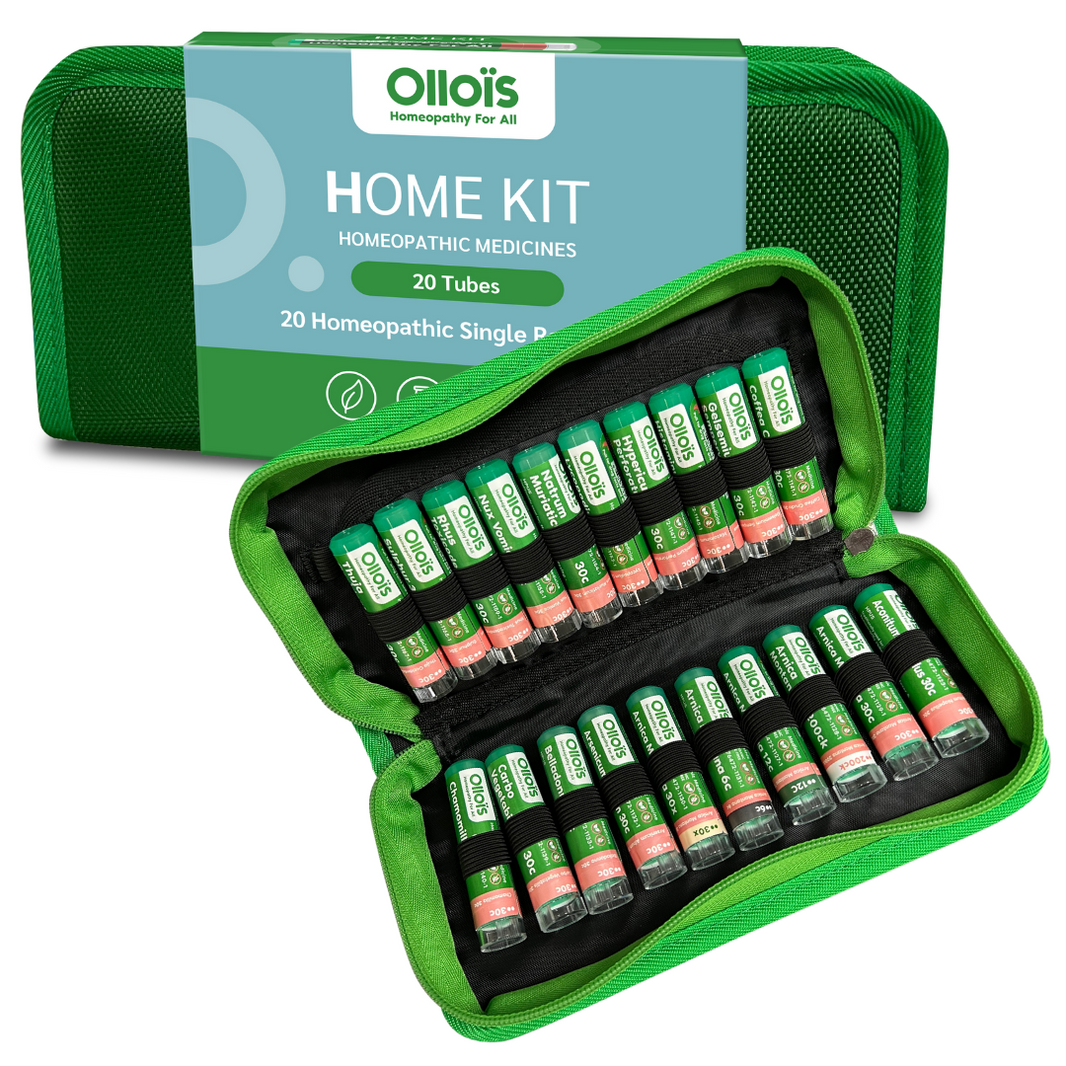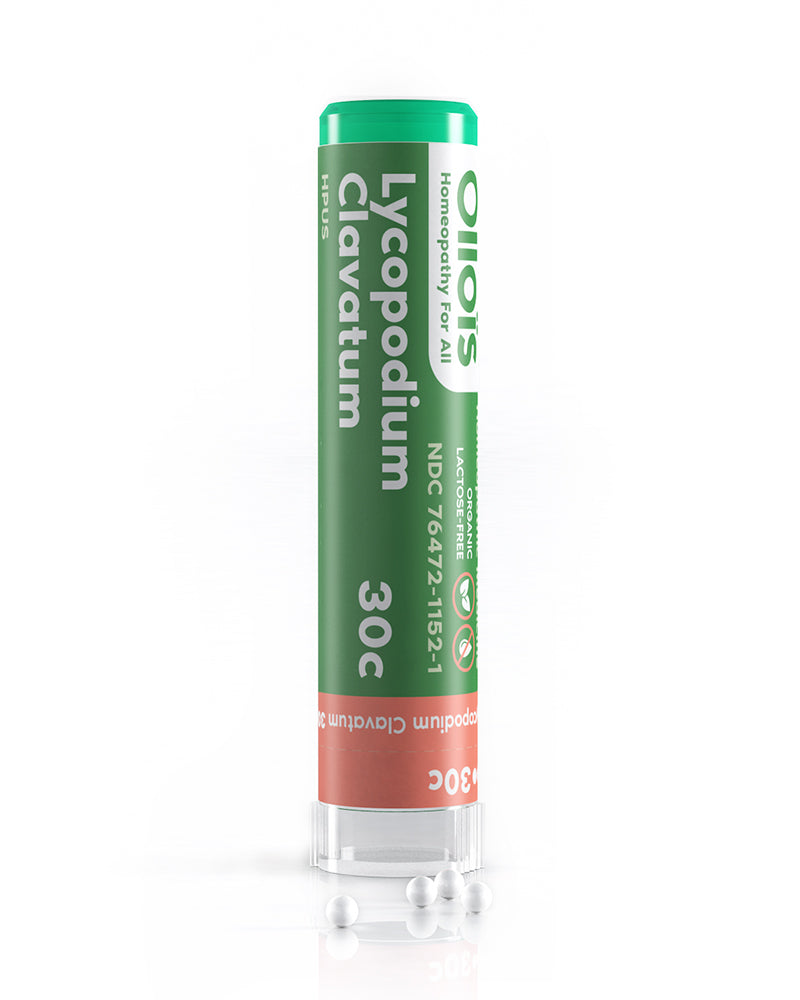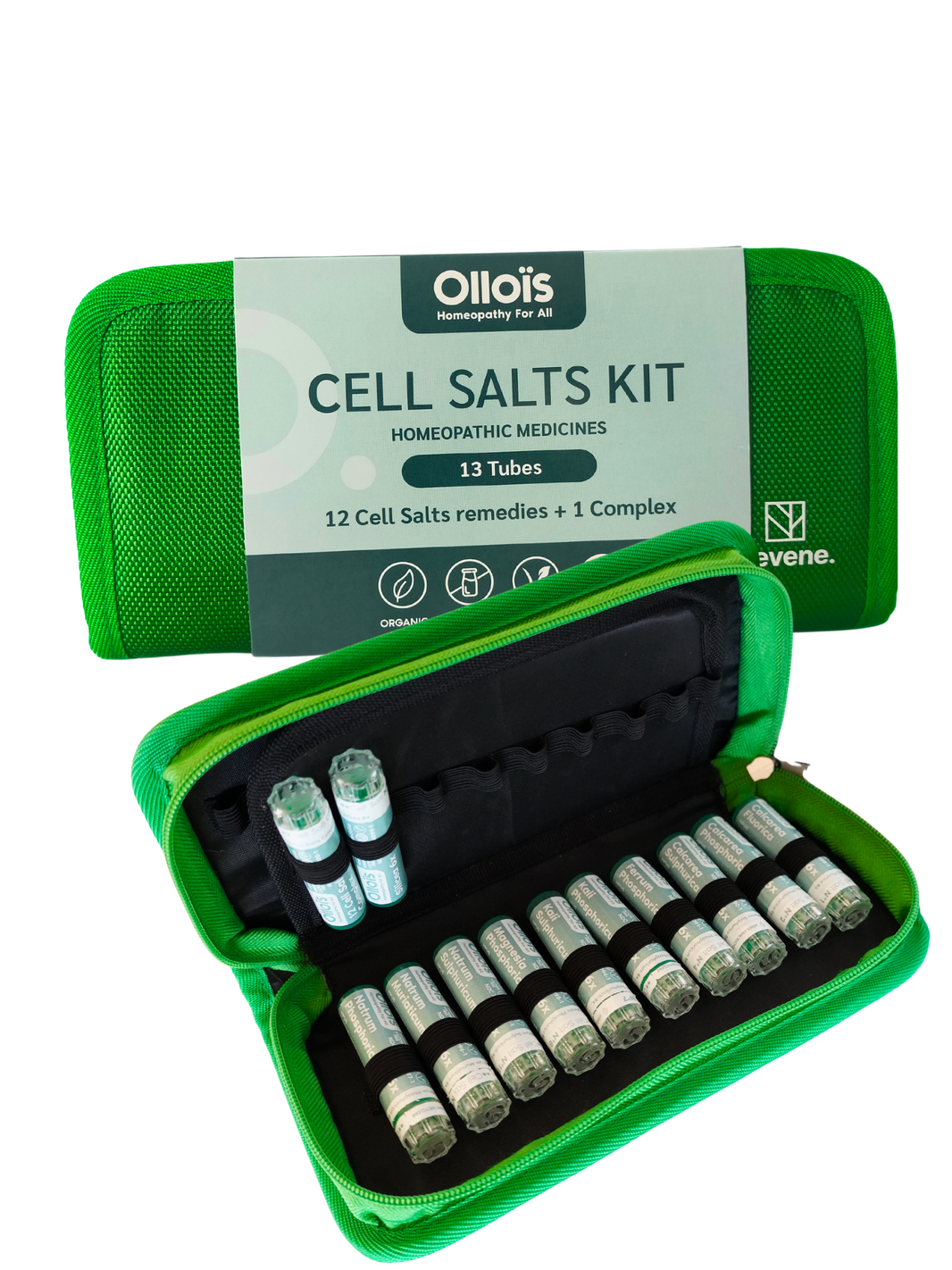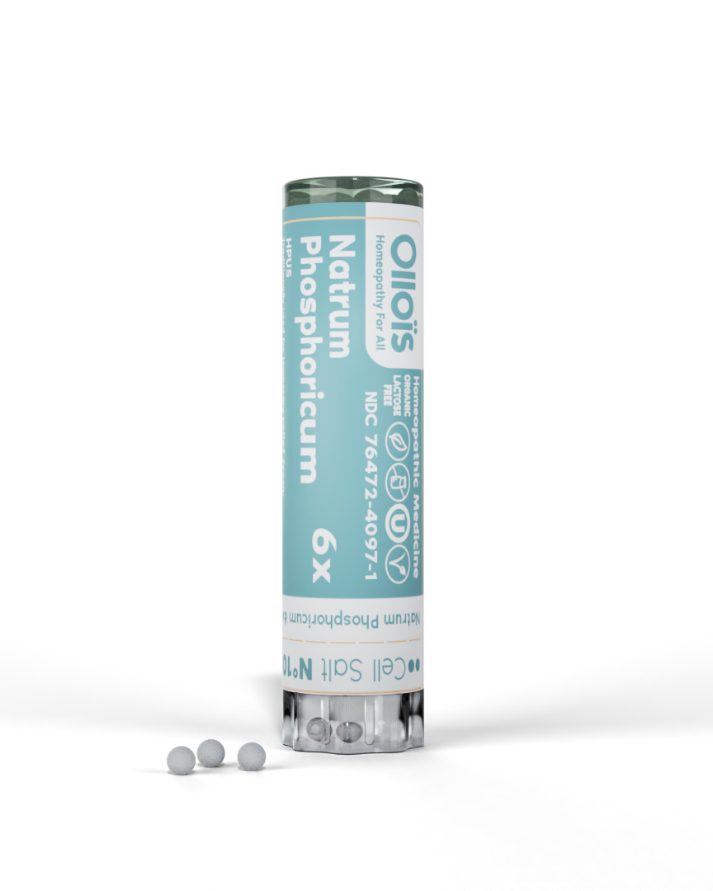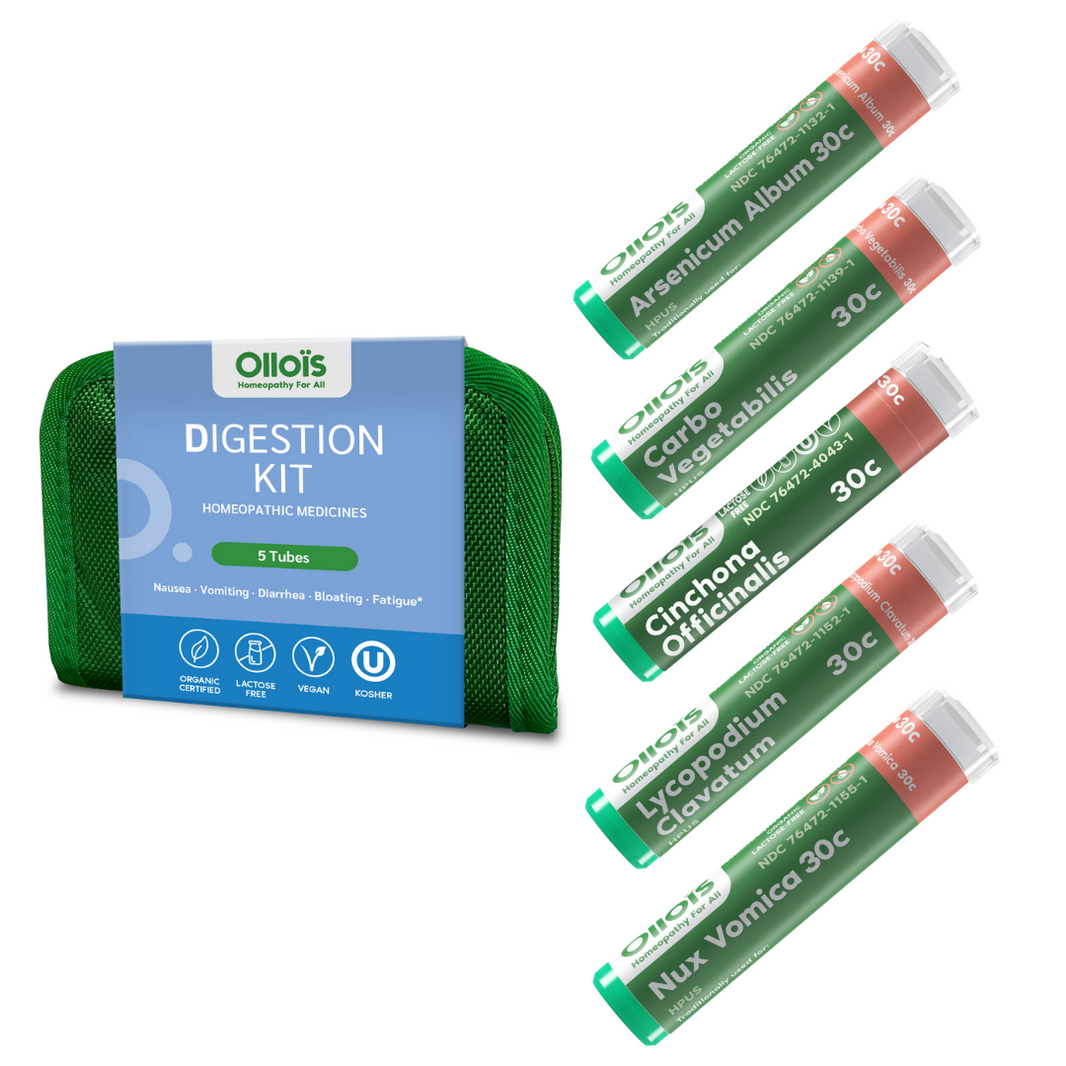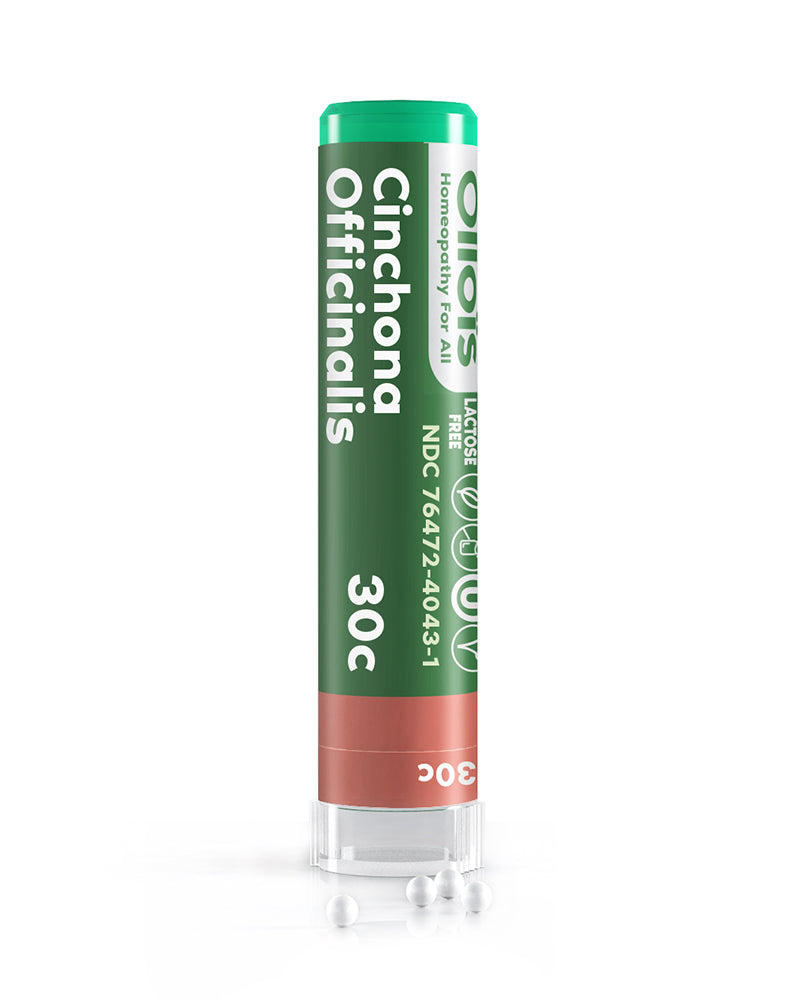Collection: Gas
Homeopathic Home Kit
Lycopodium Clavatum
Cell Salts Kit
Cell Salt N°10 Natrum Phosphoricum
Homeopathic Digestion Kit
Cinchona Officinalis
Abdominal gas is a natural part of digestion. Swallowing air while eating and drinking fizzy beverages can result in gas in your stomach which can bubble up in the way of burping. In the large intestine, gas is created by bacteria digesting starches and sugars that were not digested in the small intestines; the process results in fermentation. This gas is released through flatulence, which, while very normal, has the potential to be embarrassing depending on your settings. However, in most circumstances this can be managed relatively comfortably.
High-fibre foods are common causes of gas. Foods like beans and legumes, as well as whole grains and fruits are typical contributors. Artificial sweeteners have also shown to cause gas in the colon.
In some cases, the build-up of gas can become excessive – which can be both physically and socially uncomfortable. People suffering from excessive gas will often report a stomach ache or the feeling of an air bubble in their abdomen. Whether you’re sitting, standing, or moving around, this can present a multitude of difficulties and significantly impact your usual performance. The distraction of abdominal ache can make it difficult to focus on work or around-the-house tasks; and will present significant challenges for any physical exertion.
If you are looking for natural relief, there is homeopathic medicine for gas. An all-natural remedy from Olloïs, Carbo Vegetabilis 30C, is a traditional treatment for excessive gas. This will help reduce the build up of gas and get you back to feeling confident and comfortable.
Discover more homeopathic, all-natural, and organic remedies from Olloïs that can help keep you feeling at your best.
FAQ
What is Homeopathy?
Homeopathy is a medical practice based upon the body's ability to heal itself, and the principle that "like cures like" or the Law of Similars: that is, if a natural substance causes a symptom in a healthy person, a very small amount of the same substance may help relieve symptoms of the illness. Homeopathic medicines enhance the body's normal healing and self-regulatory process.
How do I take homeopathic medicines?
Homeopathic medicated pellets contain only a little of an active ingredient for treatment of disease. These are known as highly diluted or "potentiated" substances. Homeopathic medicines should be placed under the tongue of adults and children or in the cheek of an infant, where they will dissolve. It is preferable to take homeopathic medicines apart from meals. The dosage is not related to the weight and age of the patient. In general, dissolve 5 pellets 3 times a day until symptoms are relieved or as directed by your health Care Professional.
Is there evidence that Homeopathy works?
There are literally hundreds of high quality, published basic sciences, pre-clinical and clinical studies showing that homeopathy works. These studies have been published in respected journals like Lancet, Pediatrics, Rheumatology, and Annals of Internal Medicine, among others.
A great source of high quality research in homeopathy at an
international level is the Homeopathic Research Institute in the U.K. headed by physicist, Dr Alexander Tournier. Click below to learn more about their studies and rigorous methods.
Is Homeopathy regulated?
The U.S. Congress passed a law in 1938 declaring that homeopathic remedies are to be regulated by the U.S. Food and Drug Administration (FDA) in the same manner as nonprescription, over the counter (OTC) drugs.
Is Homeopathy new?
The Law of Similars has been known since at least the time of Hippocrates (ca. 400 B.C.), but it was doctor and chemist Samuel Hahnemann who fully stated the ideas of homeopathy in the early 1800's in Germany. He discovered the truth of the Law of Similars by testing small doses of medicine on himself. Although there is wider acceptance of homeopathy in countries such as France, Germany, Mexico, Argentina, India and Great Britain, we have seen a greater interest in homeopathic medicine in the USA recently. In fact, the family doctor to England's Queen Elizabeth is a homeopathic physician.
What is the difference between the dilutions?
30C dilutions are traditionally used in Homeopathy to address general and chronic symptoms.
200CK dilutions are usually recommended by healthcare practitioners when there is an emotional component associated with physical symptoms.
Which base ingredient do you use for your pellets?
Our pellets are made from Organic Beet Sucrose exclusively grown in Europe. We then impregnate the pellets with the homeopathic dilution of the remedy.
How to open our tubes?
Are Olloïs remedies HAS/FSA eligible?
Yes, Olloïs homeopathic remedies are eligible.

 Respiratory
Respiratory
 Stress & Sleep
Stress & Sleep
